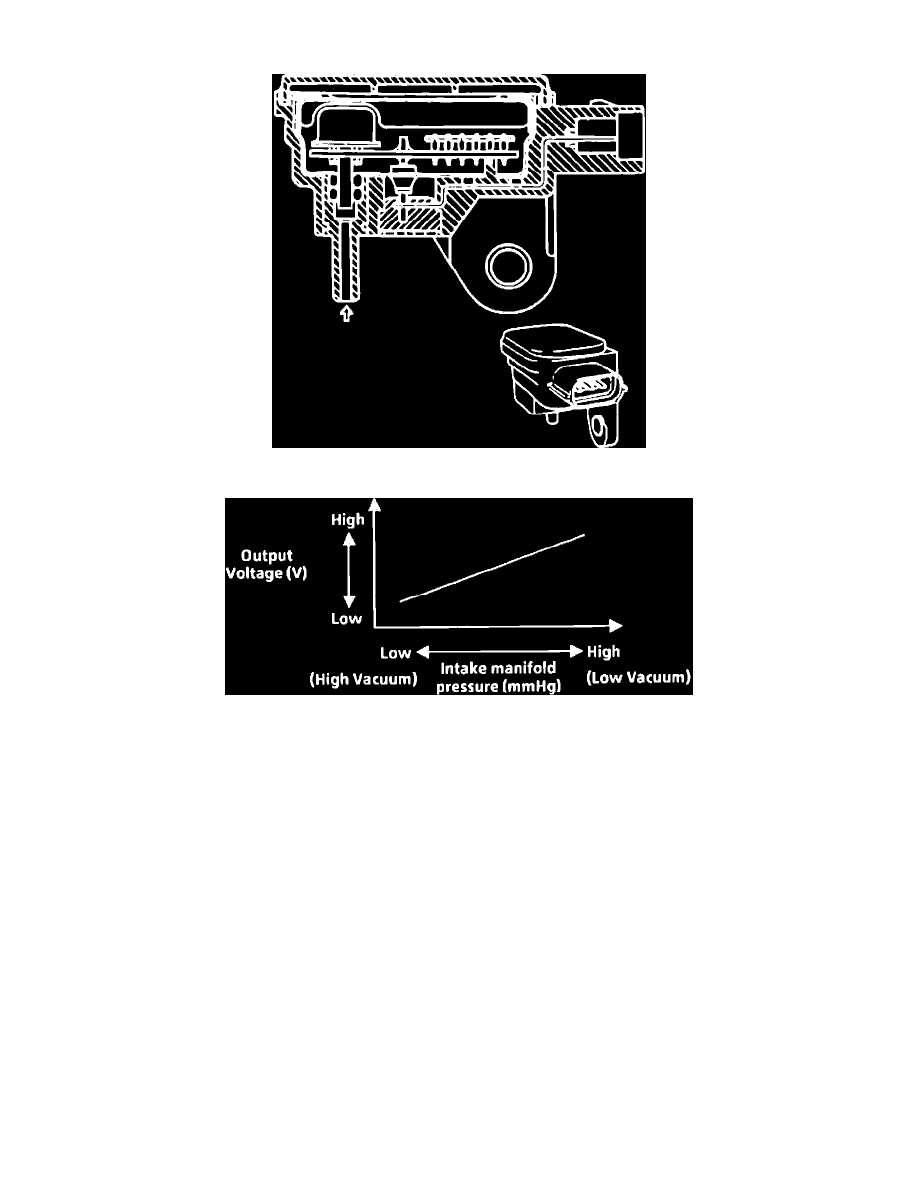Storm L4-1600cc 1.6L SOHC (1990)

Manifold Pressure/Vacuum Sensor: Description and Operation
MAP Sensor
MAP Sensor Output Characteristic
The Manifold Absolute Pressure (MAP) sensor measures the changes in the intake manifold pressure which result from engine load and speed changes,
and converts this to a voltage output. A closed throttle on engine coast down would produce a relatively low MAP output, while a wide-open throttle
would produce a high output. MAP sensor pressure is the opposite of what would be measured on a vacuum gauge. When manifold pressure is high,
vacuum is low. The MAP sensor is also used to measure barometric pressure under certain conitions, which allows the ECM to automatically adjust for
different altitudes. The ECM sends a 5.0 volts reference signal to the MAP sensor. As the manifold pressure changes, the electrical resistance of the
sensor also changes. By monitoring the sensor output voltage, the ECM knows the manifold pressure. A higher pressure, low vacuum (high voltage)
requires more fuel, while a lower pressure, higher vacuum (low voltage) requires less fuel. A failure in the MAP sensor circuit should set a Code 33.
